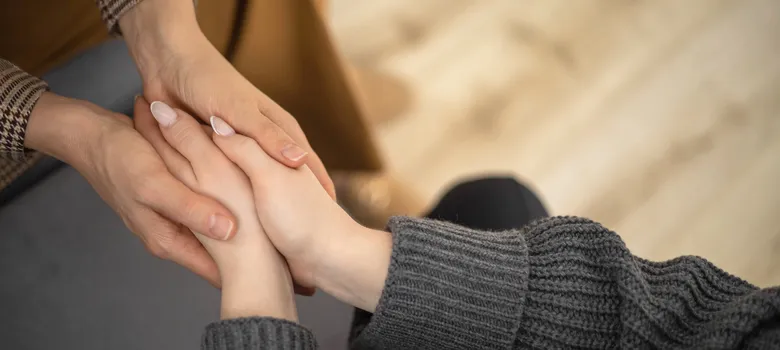
Many people struggle with marijuana addiction and need support to overcome it. Getting help for marijuana addiction can make a big difference and give you the tools to live a healthier, more balanced life.
There are support groups, professional treatment and rehab, and resources that focus on helping you kick the habit. Whether you want to cut back or quit completely, taking the first step to seek marijuana addiction help can give you the support and guidance you need to succeed.
Understanding Marijuana Addiction
Marijuana addiction, otherwise known as cannabis use disorder, can affect how your brain works, decision-making, and relationships. Knowing what causes dependency and recognising its signs can help you take useful action to get support early.
What Is Marijuana Addiction?
Marijuana addiction happens when you become unable to control your cannabis use, even if it leads to problems in your life. While not everyone who uses marijuana gets addicted, THC, the main psychoactive ingredient, can cause dependency in some people.
Repeated use can change how your brain’s reward system works, making it hard to stop or cut back. If you continue to use weed despite facing issues at work, school, or in your relationships, this may suggest a problem.
Causes and Risk Factors for Cannabis Use Disorder
A mix of biological, psychological, and environmental factors contributes to marijuana addiction. Genetics can play a role if you have a family history of substance disorders. Teenagers and young adults are at higher risk because the use of marijuana can interfere with brain development.
Mental health disorders like anxiety or depression can also increase your chances of cannabis dependency. Stressful environments, trauma, or peer pressure may push you to use marijuana more often.

Recognising the Effects of Marijuana Use
Marijuana use can affect your mind and body in ways that may not be obvious at first. Understanding the full impact helps you notice problems early and seek the right support.
Mental Health Issues and Marijuana Abuse
Mental health and addiction are often interconnected. Using marijuana can lead to a range of mental health issues. Some people notice an increase in anxiety or depression after regular use. You might experience changes in how you handle stress or start to withdraw from social life.
Marijuana can also worsen existing mental health disorders or mimic symptoms you are trying to manage, like insomnia or nervousness. This can make it hard to recognise the connection between your symptoms and drug use.
Physical Health Problems Associated with Drug Use
A marijuana addiction may cause physical health problems that are sometimes overlooked. Smoking the drug can irritate your lungs, leading to coughing or trouble breathing. Some users notice changes in appetite or sleep patterns.
Long-term use might impact your memory and attention span. You may also feel tired or ‘foggy’ more often. Some studies suggest heavy marijuana use can weaken the immune system, which might make you more likely to get sick.
Physical side effects can be subtle at first but often become clearer over time. It’s important to watch for these signs, especially if they start to affect your daily life or physical wellbeing.

Cravings, Withdrawal Symptoms, and Relapses
When you stop using marijuana, you might experience withdrawal symptoms. Common symptoms of marijuana withdrawal include:
- Strong cravings for the drug
- Irritability or mood swings
- Trouble sleeping
- Lack of appetite
- Feeling restless
Cravings can be intense and may tempt you to start using again, leading to relapses. Sometimes withdrawal causes symptoms that feel similar to the issues you used marijuana to manage, such as anxiety or insomnia.
It’s important to recognise that withdrawal and relapses are common challenges faced during recovery. Noticing these symptoms early can help you prepare for them and avoid returning to regular drug use.
Marijuana Addiction Treatment
When you want to stop using marijuana, knowing your options is important. Treatments often include a mix of detox, therapy, and lifestyle changes to support long-term recovery. Marijuana addiction help can include:
Detox and Managing Withdrawal
Supervised drug detox is the first step for getting marijuana addiction help. During detox, your body clears out the THC, the active chemical in marijuana. Some people may feel withdrawal symptoms like trouble sleeping, headaches, mood swings, or cravings. Some treatment programmes include supervised detox so you can access help if symptoms get too strong.
Behavioural Therapy Approaches
Behavioural therapies are proven treatments for marijuana addiction. One of the most effective is cognitive-behavioural therapy (CBT). CBT helps you learn to recognise and change thought patterns and behaviours that lead to marijuana use. You build coping skills and make plans for handling triggers or tough situations.
Rehab
For long-term addiction, an inpatient treatment programme may be necessary to help you stop smoking marijuana. In residential rehab, you’ll stay at an addiction recovery centre for a few weeks. While in the treatment centre, you’ll be in a controlled environment where you can receive intensive marijuana treatment.
Lifestyle Changes
Changing your lifestyle can play a big part in recovery from marijuana addiction. Regular exercise helps reduce stress, boost mood, and improve sleep, all of which make relapse less likely. Meditation or mindfulness can help you manage cravings and improve self-control. Eating nourishing meals, keeping a steady sleep schedule, and spending time with supportive friends and family are all important.
Support Networks for Recovery
Marijuana addiction help does not just include rehab treatment. Building the right support system is important in a rehab programme. Access to both peer and professional support increases your chances of long-term recovery by helping you stay accountable and connected.
Family and Community Involvement
Seeking marijuana addiction help from your friends and family can help optimise your recovery. Family therapy sessions encourage open conversations and help everyone understand the challenges of addiction. This support can reduce misunderstandings and help set healthy boundaries.
If friends and family learn how to support you by listening, avoiding judgement, and helping with daily accountability, your chance of success improves. Education sessions and support groups for families are available.

Marijuana Rehab Can Help You Heal
Some people do not see marijuana use as a problem, as it is seen as a ‘soft’ drug and it’s increasingly legalised in many parts of the world. Despite this, any form of drug addiction can have devastating consequences. At Sivana Bali, we can offer you marijuana addiction help that can help you find a path to recovery.
Frequently Asked Questions
What are the signs of cannabis dependence?
Signs of cannabis dependence include wanting to use more often, finding it hard to stop, continuing use even when it causes problems, or spending a lot of time getting and using cannabis. You might lose interest in activities you once enjoyed and find your plans or goals dropping away.
How can one begin the process of overcoming cannabis addiction?
Starting with a conversation with a doctor or a counsellor is a strong first step. A General Practitioner (GP) can guide you and connect you to helpful community resources or give you a referral to a specialist like a clinical psychologist. Making small changes, like reducing use or avoiding situations where you’re likely to use, can also help you get started.
What treatments are available for those struggling with cannabis use?
Treatment options include counselling, support groups, and medical guidance. Your GP may give advice or suggest a specialist. Other approaches include behavioural therapies and working with community organisations that understand substance use. Flexibility in treatment is important as people respond differently to each option.
Are there any support groups for individuals dealing with cannabis dependency?
Yes, there are specific support groups that provide a safe and confidential way to talk about recovery. These groups bring people together to share experiences and build support to stay off cannabis.
How does counselling aid in the recovery from cannabis addiction?
Counselling helps you understand your reasons for using cannabis and teaches you new ways to manage stress or avoid triggers. A counsellor will work with you to set goals, find your strengths, and build skills for handling cravings or relapses.
What role do family and friends play in the recovery from cannabis misuse?
Family and friends can encourage you to seek help and stand by you during setbacks. Their support might include listening without judgement, helping you avoid risky situations, or joining you at support meetings.
